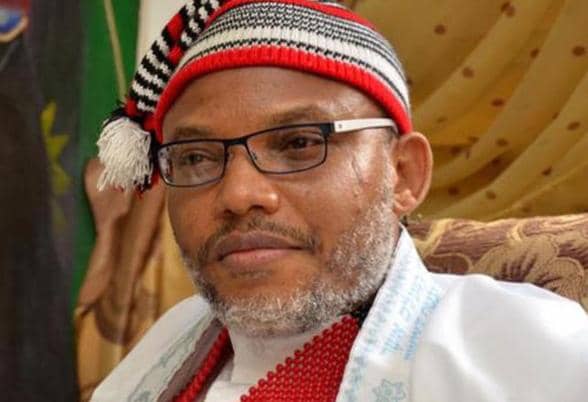Paragraph 1: The Indefinite Adjournment and Kanu’s Recusal Argument
The trial of Nnamdi Kanu, leader of the Indigenous People of Biafra (IPOB), has been indefinitely adjourned by Justice Binta Nyako of the Federal High Court in Abuja. This decision stems from Kanu’s persistent refusal to accept Justice Nyako’s authority to preside over his case, citing her previous recusal. Kanu’s stance created an impasse in the courtroom, preventing the trial from proceeding. The adjournment, announced on Monday, leaves the future of the trial uncertain and highlights the ongoing tension between Kanu and the judicial system.
Paragraph 2: Background of the Case and Kanu’s Accusations
The court proceedings on Monday were initially scheduled to address Kanu’s pending trial. However, the focus quickly shifted to Kanu’s objections against Justice Nyako. Earlier this year, Kanu filed a petition with the National Judicial Council (NJC) accusing Justice Nyako of judicial misconduct in his trial. He had also requested that his case be transferred to the South-East region if no other judge in Abuja besides Justice Nyako was willing to hear it. These actions underscore Kanu’s deep distrust of Justice Nyako’s impartiality.
Paragraph 3: The Court Proceedings and Judge Nyako’s Explanation
The court proceedings began with the prosecution, represented by Adegboyega Awomolo (SAN), declaring their readiness to proceed with the trial, having filed and served all necessary documents. Defense lawyer Aloy Ejimakor, however, indicated that the central issue was not the trial itself, but rather Justice Nyako’s involvement. Justice Nyako then clarified that while she had previously recused herself, the Chief Judge had overturned her decision. She instructed the defense to file a formal motion requesting the case’s reassignment to another judge.
Paragraph 4: Kanu’s Interjection and Self-Representation
Before the lawyers could discuss the motion, Kanu interjected, demanding to speak. He announced his intention to represent himself and asserted that he attended court solely out of respect for the judiciary, not because he acknowledged Justice Nyako’s jurisdiction. He argued that her previous recusal invalidated her current authority over his case. Kanu’s actions disrupted the court proceedings and signaled his intent to control the narrative around his trial.
Paragraph 5: Heated Exchange and Kanu’s Disrespectful Remarks
A heated exchange ensued between Kanu and both the judge and prosecutor. Kanu hurled insults at the prosecutor, accusing him of supporting evil for monetary gain. He addressed Justice Nyako directly, declaring her court a "shrine to injustice" and refusing to be subject to its authority. He argued that the Chief Judge’s memo reinstating Justice Nyako couldn’t supersede her initial recusal order. He also criticized the Chief Judge, claiming to have previously recused him from another appeal case via the NJC. Kanu’s disrespectful language and accusations further escalated the tension within the courtroom.
Paragraph 6: The Adjournment and Kanu’s Continued Defiance
Following the heated exchange, Justice Nyako announced the indefinite adjournment of the case (sine die). Even this decision met with Kanu’s defiance. He maintained that Justice Nyako lacked the jurisdiction to adjourn the proceedings, further underscoring his refusal to acknowledge her authority. The indefinite adjournment leaves the future of Kanu’s trial uncertain, while his continued defiance sets the stage for a protracted legal battle concerning the assigned judge and potentially the jurisdiction of the court itself.














